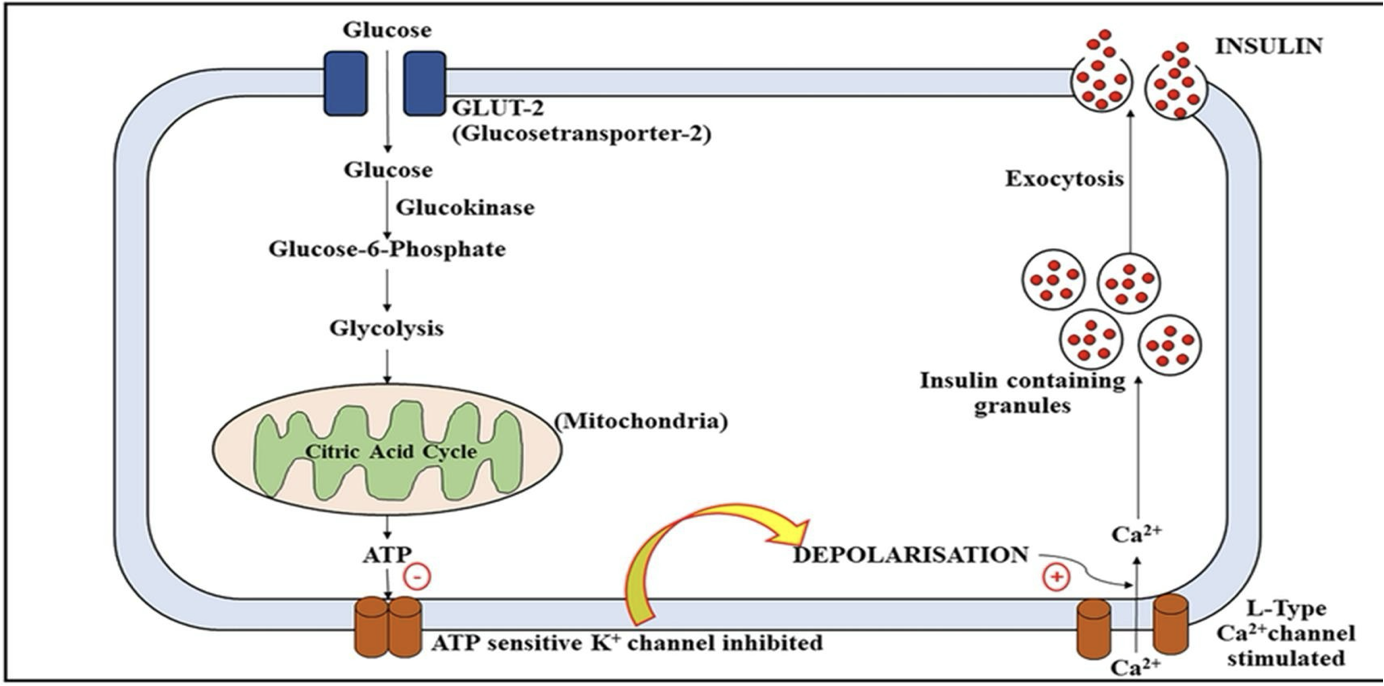 #Y
#Y
-
The pancreatic β-cell secretes insulin in response to the plasma level of glucose and nutrients (amino acids, free fatty acids) -Glucose is the primary factor controlling β-cell function and survival. -Additional signals like metabolic factors, neurotransmitters, and hormones modulate insulin secretion.
-
Glucose entering β-cell via glucose transporters-2 Glucose rapidly phosphorylated to glucose-6-phosphate by glucokinase
-
G-6-P oxidated in mitochondria ATP from Kerb’scycle.
-
The rise of ATP ratio in β-cell leads to subsequent closure of the KATP channel
-
K ions retention causes depolarization and opening of L-type voltage-dependent Ca2+ channels.
-
High intracellular Ca2+ induces exocytosis of secretory
-
granules containing insulin/proinsulin from pancreatic β-cell. It is mainly cleared by insulinase activity within the liver, kidneys, and other tissues.
Glucose induces insulin secretion (GSIS)
Is a biphasic peak-manner :
-
1st phase is a rapid, early peak due to exocytosis of stored (readily releasable) insulin granules.
-
2nd phase is a slower and gradually rising peak activated by cytosolic Ca2+, ATP, and cAMP production.
- It is due to the subsequent supply of new insulin granules for release.